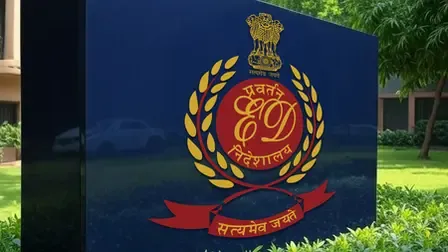Did the J&K Crime Branch Uncover a Fake Investment Scam?

Synopsis
Key Takeaways
- Economic Offences Wing actively combats investment scams.
- Fake certificates were used to lure investors.
- Two suspects arrested for their role in the fraud.
- Investors are urged to remain vigilant against such schemes.
- Significant amounts of money are often involved in these scams.
Srinagar, Aug 13 (NationPress) The Economic Offences Wing of the J&K Crime Branch executed searches at several sites in Srinagar city on Wednesday, as part of an investigation into a fraudulent investment scheme that guaranteed high returns to unsuspecting investors.
A statement from the crime branch disclosed, “The Economic Offences Wing (Crime Branch Kashmir) today conducted searches across multiple locations in District Srinagar related to case FIR No. 11/2025 under Sections 420, 467, 468, 471, 120-B IPC of P/S EOW-S (Crime Branch Kashmir).
“The case unfolded after Crime Branch Kashmir received an online complaint alleging that the complainant had been deceived by two con artists, identified as Majid Nazir Najar, son of Nazir Ahmad Najar from Batamaloo, and Mubarak Ahmad Rather, son of Nissar Ahmad Rather from Gulshan Nagar, Gulposh Colony. They promised lucrative returns on investments in Adarsh Cooperative Society, SBI Life Insurance, and HDFC Insurance, providing the victim with fraudulent deposit certificates,” officials stated.
Upon investigation, it was revealed that these certificates were counterfeit. The accused posed as authorized representatives and agents of various financial institutions, enticing the complainant to invest in different deposit schemes.
“A case was formally registered under pertinent sections of law, and evidence gathered during the investigation confirmed the involvement of both suspects. Both individuals have been arrested for further inquiries. Ongoing searches are being conducted at multiple locations linked to the arrested individuals as part of this investigation,” the officials added.
The desire for quick financial gain is a significant factor driving such economic crimes, as both the deceived and the deceiver pursue rapid profits, often disregarding the potential fallout.
In a parallel fraudulent investment case in Ganderbal district, four individuals, including a bank employee, were charged in court for swindling gullible investors out of Rs 53 crore by promising swift returns on their investments.
The four defendants in this scheme have been denied bail and are currently incarcerated.









